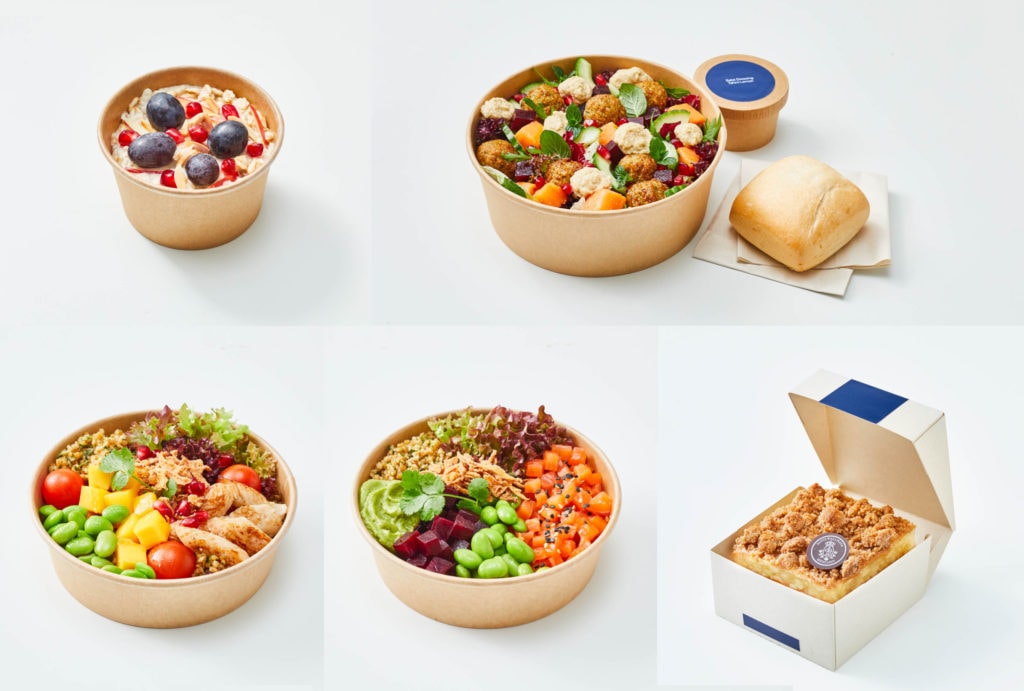Retail inMotion Talks Green, Sustainable Menu Strategies
Share

Lufthansa’s fresh new catering concept puts sustainability and passenger health and wellbeing front and center.
In November 2020, Retail inMotion (RiM) announced plans to support Lufthansa Group airlines in the development of a customer-centric premium retail concept. This week, it unveiled a new catering concept for Lufthansa in partnership with dean&david and Dallmayr that will bring fresh, sustainable products to economy-class passengers on short- and medium-haul flights.
APEX Media asked Verena Ventsch, director of Category Management and Design; and Nicole Beckers, product manager, Onboard Retail at Retail inMotion, about creating the menu, the importance of sustainable packaging and food selections, and the challenges of introducing new concepts during the pandemic.
“When we started looking at potential brand partners, we had some clear qualities in mind, such as a traditional heritage that would also reflect the current zeitgeist, a great international brand perception, high-quality products and a focus on sustainability. The products would also have to be made in Germany, relate to the airline’s brand values and fit their passengers’ needs, as well as show flexibility in terms of adapting their retail products to cater to the challenging operational needs of an airline,” Ventsch explained.
“[Passengers] want to know what they’re eating and where it comes from.”
Verena Ventsch, Retail inMotion
The new menus are sustainable both in their environmentally-friendly packaging and their reliance on locally-sourced fresh ingredients.
“The characteristics that are important to us when selecting packaging are the sustainable aspect, the simple and clean design, whether it can be handled easily by both crew and passengers and if it can be stowed in the trolleys and drawers,” said Beckers.
RiM uses PaperWise material for their packaging, which has the same quality as conventional paper but is made entirely of recycled agricultural waste such as rice, grain and sugar cane from food production. This unique composition reduces their packaging’s environmental impact by 47% compared to conventional paper, and by 29% compared to recycled paper.
The importance of sustainability also includes a considered approach to menu cards, as does the ongoing COVID-19 pandemic, said RiM. “Minimal menu cards will be offered onboard, but they will be covered with a special coating that protects the passenger from bacteria and viruses,” Ventsch expanded. “The extended version of the menu will be available online, which will allow passengers to browse it on their personal devices.”
“When selecting the fresh products for the menu, we are interested in quality, and whether the brands are a good fit for the airline’s culinary excellence approach,” Beckers continued. “We include both classics and innovative dishes to meet the needs of all passengers, which means we also offer vegan and vegetarian choices, options for passengers who eat meat, gluten- and lactose-free snacks, etc.”
While the COVID-19 pandemic has urged airlines to review their business strategies and passenger service offerings, Ventsch and Beckers point out it has also changed passenger behavior and expectations. Ventsch said, “More and more travelers demand high-quality products and greater choice. They are also passionate about a healthy lifestyle and want the onboard offer to mirror those expectations. They want to know what they’re eating and where it comes from.”


